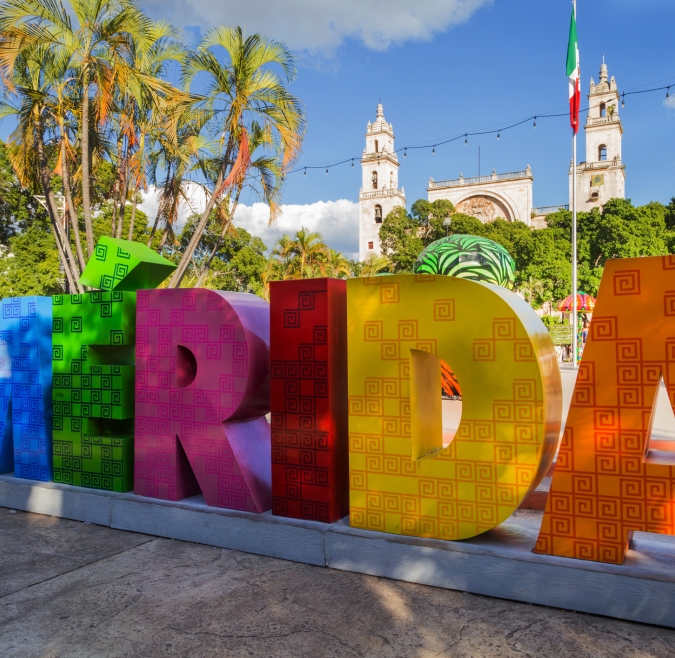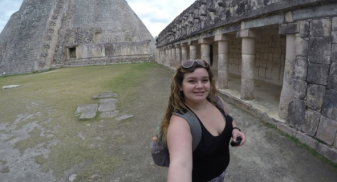Winter: Rutgers- Empowerment through Community Engagement in the Yucatan
The Program
Stunning wildlife and impressive Mayan ruins surround you as you explore diverse research practices, participate in immersive and demanding fieldwork to enrich the local community, and develop your knowledge of social work and community building from experts in the field.
Learn about community-based social work practices that help meet the needs of vulnerable and under served populations in Yucatán, Mexico. Hear from professional social workers and professors about the challenges and benefits of community-based approaches to empowerment and development. Engage with social workers and clients in a variety of health and social welfare settings.

Program Location

Mérida
The tranquil, colonial city of Mérida is a wonderful blend of Mayan, Hispanic, and modern-day Mexican cultures--not to mention colorful birds, wily geckos, and bejeweled beetles. Merida is the capital of the Yucatán, and home to the Universidad Autónoma de Yucatán, which will host this program. Mérida also has a vivid cultural life of theater, dance, music, street festivals, sports, and folklore.
Academics
Syllabus 2026. Please note this is a sample syllabus, all of its content is subject to change.
This course provides students with the historical and current information on vulnerable populations in the Yucatán and the education and practice of social work in Mexico. The course of study and service learning will emphasize knowledge and skill-building in community engagement and development that is specific to social work practice in Mexico, specifically, and Latin America, more broadly. Community development and empowerment for addressing discrimination and oppression is a special strength of social work in Spanish-speaking countries in contrast to US models that emphasize more individualistic approaches to problem-solving. Comparative research on the efficacy of different models will be explored. Lectures from Social Work faculty at UADY, field visits and international service learning opportunities will engage students directly with clients, faculty, students and practitioners in public and private social services agencies, local traditional healers and religious community groups.
For information about study abroad credit transfer, registration, and transcripts please visit the Academics section of our website.
Excursions
Visits to sites of cultural and ecological relevance will be incorporated into the program itinerary to give students an introduction to the unique cultural and biological landscape of the Yucatán. Planned excursions include the ancient Mayan city of Uxmal and the Celestún Biosphere Reserve.
Housing and Meals
Students will be hosted at the Hotel El Castellano in double rooms. Breakfast is included every morning in the hotel. Group lunches will be provided for all participants during the two excursions; students will be responsible for purchasing the remainder of their meals in-country during the program.
Financial Information
Program Costs
| Program Cost | NJ Resident | non-NJ Resident |
|---|---|---|
| Undergraduate | $2,960 | $3,420 |
| Graduate | $3,250 | $3,680 |
Program Cost includes:
• Tuition
• Some meals
• Housing
• Excursions
• In-country transportation
• Administrative Fees
• Emergency Medical Access Abroad
* The winter session student fee is not included in the program cost above.
Out-of-Pocket Costs
| Airfare | $800 |
| Additional Meals | $150 |
| Personal Expenses | $100 |
| Total | $1,050.00 |
Out-of-Pocket Cost includes:
The above costs are estimations and represent the known out-of-pocket costs students encounter during their time abroad.
Some of these expenses will be paid for prior to going abroad, such as an airline ticket and visa costs, while some of these expenses, such as meals and local transportation, will be paid in-country as part of your daily expenses. As you plan, you will need to budget these costs and spend wisely throughout your time abroad.



